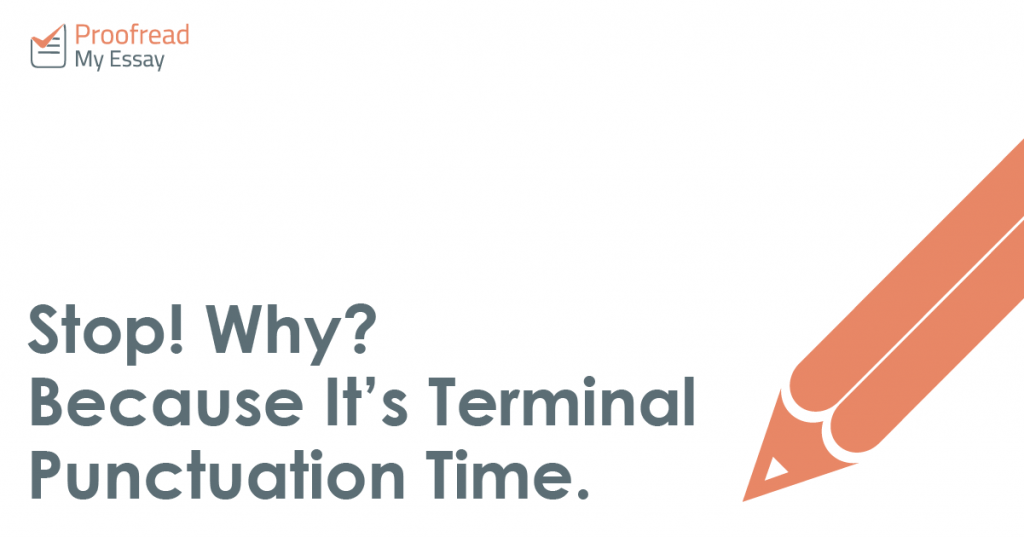‘Terminal punctuation’ might sound dangerous (as if commas posed a health risk). But it’s actually a technical term for punctuation that goes at the end of a sentence.
We have three common terminal punctuation points: the full stop, the question mark and the exclamation point. In this blog post, we’ll run through how each of these should be used.
The Full Stop.
The full stop (or ‘period’) is the most basic form of terminal punctuation. It goes at the end of any sentence that isn’t a question or exclamation. Combined with capitalising the first letter of the next word, this makes it easy to see where one sentence ends and another begins.
We see the same mark used for other forms of punctuation, such as:
- Marking abbreviations (e.g. when ‘page’ is shortened to ‘p.’ in a citation)
- Decimals (e.g. 2.53)
- Ellipses (i.e. three dots that indicate an omission)
However, it only counts as a proper ‘full stop’ at the end of a sentence.
The Question Mark?
A question mark, as the name suggests, is the punctuation we use to indicate a question. However, this only applies to direct questions. With indirect questions (i.e. a question that is being reported rather than asked), the sentence should end with a full stop:
Where’s the beef? – Direct question
Find this useful?
Subscribe to our newsletter and get writing tips from our editors straight to your inbox.
He asked where the beef is. – Indirect question
With rhetorical questions, you can use either a full stop or a question mark.
The Exclamation Point!
Finally, we have the exclamation point (or exclamation mark). This is used to express surprise or strong emotions. For instance, we might say:
Wow! That’s the biggest dog I’ve ever seen!
Here, the exclamation points show that the speaker is excited and surprised. They can also be used in fiction to show that a character is shouting or speaking loudly.
Exclamation points are rare in academic and formal writing, however. They also lose effect if they’re overused, so you should use them sparingly even in less formal contexts.
